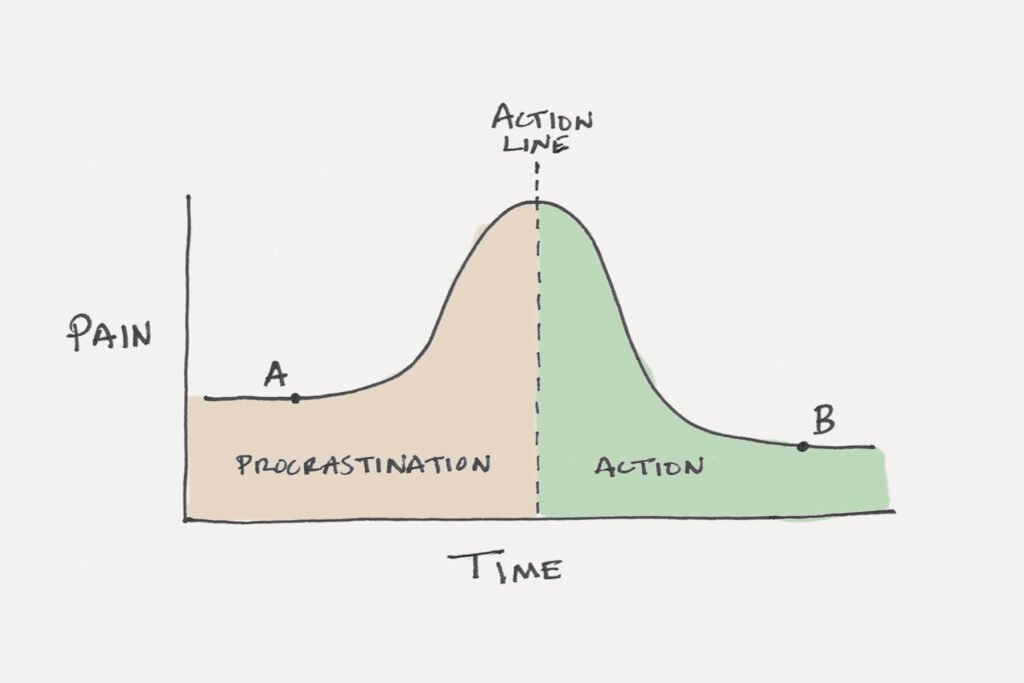Conquering Procrastination for Academic Success

Are you staring at a towering pile of assignments, feeling overwhelmed by the weight of procrastination? You’re not alone. Many students find themselves caught in a cycle of delaying, often scrolling through social media instead of tackling their homework or preparing for upcoming exams. This constant struggle with avoidance can lead to increased anxiety and diminished productivity. Understanding the root causes of procrastination is the first step to breaking free from this cycle and reclaiming your time.

You’re Not Alone: Procrastination is Common Among Students
Procrastination is a rite of passage for many students—a universal experience that often feels insurmountable. It’s that nagging voice whispering, “You can do it later,” while your heart races as deadlines approach. This tendency to delay often stems from deeper fears, perfectionism, or the overwhelming pressures of student life. For many, procrastination is intertwined with self-doubt and anxiety. The pressure to excel can create a paralyzing fear of failure, leading to a cycle where the more you delay, the more stressed you become.
You cannot escape the responsibility of tomorrow by evading it today.”
– Abraham Lincoln
Recognizing Common Triggers of Procrastination


Consider the perfectionist who spends hours perfecting a simple presentation or the student juggling multiple responsibilities, feeling crushed under expectations. These scenarios illustrate the common obstacles that transform what should be an exciting learning experience into a source of anxiety.
But what if understanding and tackling procrastination could enhance your academic performance and foster personal growth? Imagine reclaiming those lost hours, channeling your energy into your passions, and achieving your goals with confidence.

Procrastination in Indian Students:
In India, the pressures surrounding academic success are extraordinarily high, with students often grappling with intense expectations from parents, teachers, and peers. This competitive education system places immense stress on students, contributing to a significant prevalence of procrastination.
Recent studies indicate that around 70% of Indian students acknowledge struggling with procrastination, frequently driven by a fear of failure and the high stakes associated with examinations. Factors such as societal pressures, the relentless pursuit of top grades, and the emphasis on rote learning exacerbate this issue, leading many students to delay their studies until the last minute.
Additionally, the impact of social media and digital distractions further compounds the challenge, making it even more difficult for students to maintain focus. As a result, many find themselves trapped in a cycle of anxiety and avoidance, ultimately affecting their academic performance and mental well-being. Addressing these challenges is crucial for fostering a healthier learning environment and encouraging effective study habits among students.
Causes of Procrastination: What’s Behind the Delay?
Procrastination is a phenomenon that affects individuals in many walks of life, but it is especially prevalent among students navigating the complexities of academic demands. As students face mounting pressures—from rigorous coursework to high-stakes exams—the tendency to delay important tasks can become a significant obstacle. Understanding the underlying causes of procrastination is vital for developing effective strategies to combat it and improve overall productivity.

Numerous factors contribute to this behavior, ranging from psychological issues like fear of failure and perfectionism to practical challenges such as poor time management and overwhelming workloads.
Additionally, distractions from technology and social media further complicate the ability to focus. By exploring these common causes, students can gain insights into their procrastination habits and work towards adopting healthier, more effective study practices.
This cultural pressure can exacerbate anxiety and hinder academic performance, making it crucial for students to develop effective strategies to combat procrastination.
1. Fear of Failure
Imagine facing a significant project, staring at a blank screen as anxiety creeps in. You may think, “What if my ideas aren’t up to par?” This fear can be debilitating, causing many to turn to distractions like streaming shows rather than facing their concerns. Research indicates that about 25% of students struggle with this fear, resulting in a cycle of avoidance.

Overcoming It: Embrace the Messiness
Acknowledge that failure is part of growth. Instead of aiming for perfection, strive for progress. Set smaller, achievable goals, like drafting just one paragraph. Remember, every great idea started as a rough draft!
2. Perfectionism

Consider the student who spends hours perfecting each slide of a presentation, only to realize the deadline is fast approaching. This quest for perfection can lead to endless revisions and a sense of being stuck. A survey found that nearly 30% of students identify perfectionism as a significant barrier to completing their work.
Overcoming It: Set Time Limits
Assign a specific amount of time for each task. Use a timer—30 minutes for research, an hour for writing. This creates urgency and helps you focus on completion rather than perfection. Once time’s up, move on, even if it’s not perfect.
3. Overwhelm
Picture a student juggling multiple subjects, extracurriculars, and a social life. The sheer volume of tasks can feel overwhelming, leading to avoidance as a coping mechanism. Studies show that over 50% of students report feeling overwhelmed by their responsibilities at some point in their academic journey.

Overcoming It: Break It Down
Instead of viewing a massive assignment as a whole, break it into smaller, manageable pieces. Create a to-do list and tackle one task at a time. Completing each small task provides a sense of accomplishment and makes the larger project feel manageable.
The secret of getting ahead is getting started.
– Mark Twain
4. Lack of Interest
Finding motivation for a subject you’re not passionate about can be challenging. If you’re stuck reading a textbook that feels dull, it’s no wonder you’d rather scroll through social media. A survey revealed that nearly 40% of students cite lack of interest in the subject as a major reason for procrastination.
Overcoming It: Connect It to Your Interests
Relate less engaging subjects to your passions. If you love sports, think about how math applies to statistics for your favorite teams. Finding personal relevance can spark motivation and make studying more enjoyable.

5. Poor Time Management
Ever misjudged how long an assignment would take, only to scramble at the last minute? Many students struggle with time estimation, leading to panic and rushed work. Research indicates that time management issues contribute significantly to procrastination among students, impacting their performance.
Overcoming It: Use a Planner
Invest in a planner or an app to track deadlines. Block out specific study times in your schedule and stick to them. This helps you visualize your time and manage it effectively, reducing last-minute stress.

Conclusion: Turning Procrastination into Productivity
Procrastination might feel like a monster lurking in your student life, but understanding its causes is the first step to overcoming it. By embracing imperfection, breaking tasks into manageable pieces, and connecting assignments to your interests, you can reclaim your time and boost productivity. Remember, the goal isn’t to eliminate procrastination entirely; it’s about learning to manage it so you can focus on what truly matters: your growth, passions, and future success.





